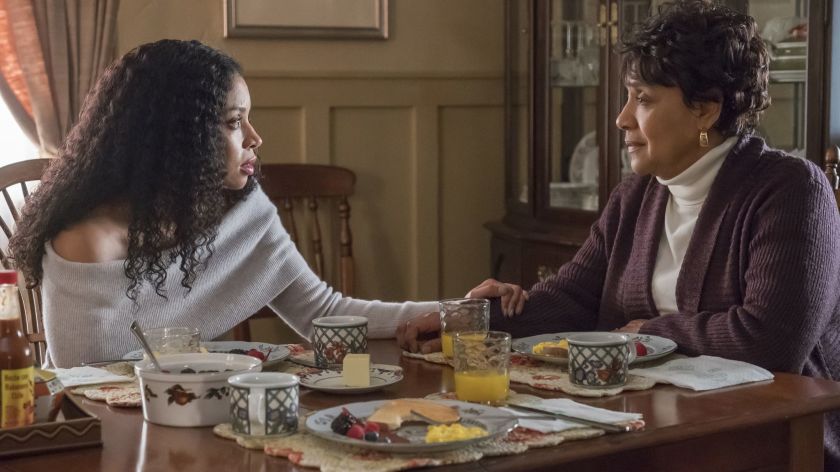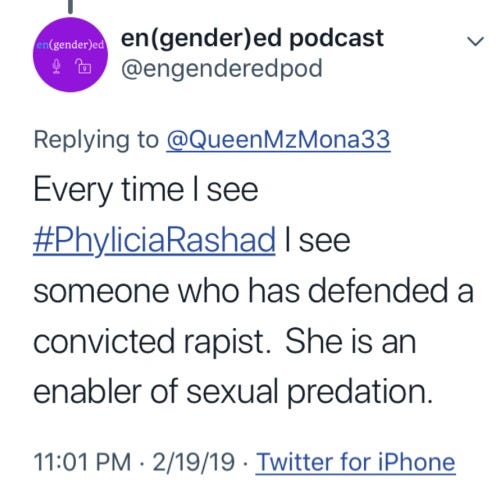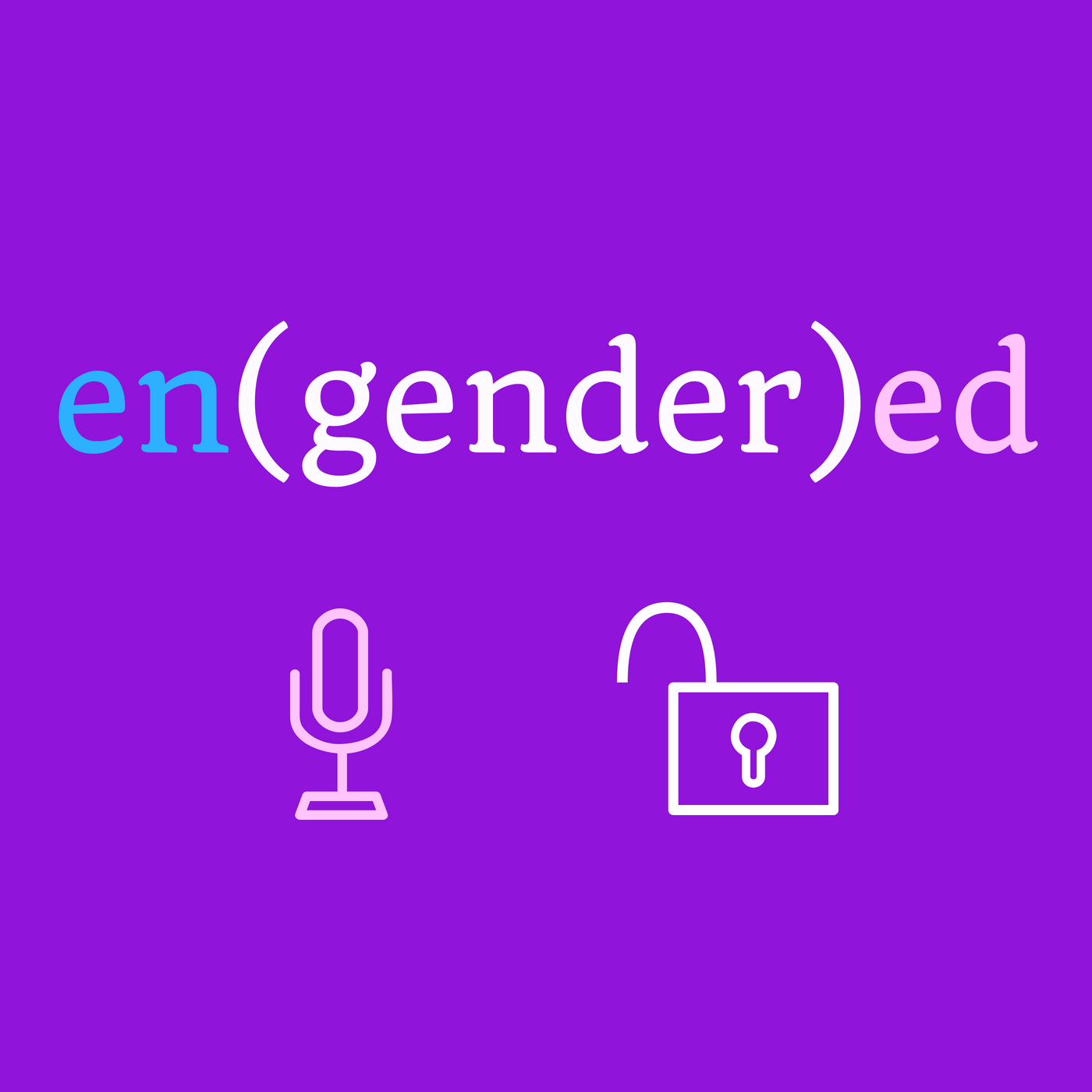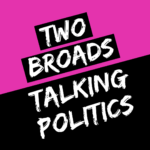
I’m a fan of TV family dramas, from Parenthood, to Party of Five, to Little House and to, of course, NBC’s This is Us. On yesterday’s episode of This is Us, fans of the show got an in depth look at one of the main character’s childhood back story — Phylicia Rashad make her debut as Beth’s mother, a story line that foreshadows more guest appearances, I’m sure. While the episode might have been fun for some fans to watch, my mind was distracted by the former Cosby Show matriarch’s first serious return to national television since the former Cosby Show patriarch — Bill Cosby — was convicted of rape — three counts of aggravated indecent assault to be exact.
I began to investigate how Twittersphere was responding to Rashad’s appearance, and surprisingly, every single tweet to the #PhyliciaRashad hashtag was celebratory in nature — many with memes or animated gifs showing her in character as Claire Huxtable — smiling, laughing and/or dancing. I felt obligated to fill the void of dissenting voices and their deafening silence by tweeting the below response to as many positive ones as my fingers could allow.

Earlier that day, the world learned of fashion icon and legend, Karl Lagerfeld’s death, and also of that of Vermont Senator — Bernie Sander’s announcement that he was throwing his hat in the ring to be one of, possibly, dozens of candidates vying to be the Democratic candidate for president in 2020. I was happy to read this trenchant and thorough critique of the fashion’s industry’s collective enabling of Lagerfeld as a misogynistic, racist, fat-shaming, bully, whose opinions of #metoo probably set the fashion industry back several years in its ability to respond effectively to sexual harassment and abuse and/or to create a culture that encouraged victims and survivors to come forward with their claims. I’m not going to do justice to the lengthy laundry list of grievances alleged against this fashion mogul, but read the article to get a glimpse and do some googling to access the rising chorus of voices who are speaking out now.
With regard to Sanders, a friend posted the feminist writer and critic — Kate Manne’s thread on Twitter, reminding us of concerns that were expressed from inside and outside his campaign network of his mansplaining, Bernie Bro toxicity, and overall nastiness, to name a few. I shared that post and immediately received a response from a friend who is apparently an ardent Bernie apologist. Nothing in Kate Manne’s thread was something you couldn’t find publicly already on the internet, just by viewing videos of the man himself speaking, or rather — roaring, snapping about this or that, and peddling his progressive policies in apparent disregard to the cognitive dissonance that this experience would generate in most progressive voters woke to how misogyny and sexism play out in individual daily interactions and behaviors.
The fact of the matter is, Rashad, Lagerfeld and Sanders all fall along the continuum of abuse that enables us to remain shocked by the ubiquity of rape culture and abuses of power in all of our cultural institutions — sports, media and entertainment, law enforcement and the military, schools — you name it. Rashad is situated on one of the spectrum where, as an apologist, she is a victim and survivor denier, using her words and platform to discredit, minimize, and cast doubt on the pain, suffering and soul-crushing experiences that only survivors of abuse and trauma can recognize immediately and instinctively as truthful. This, according to philosopher and cultural critic, Henry Giroux, contributes to our culture where we commit and acquiesce to the violence of organized forgetting — a culture that generates mass forgetfulness, obedience, and conformity. In this case, the violence is towards our ability to share our story in its whole truth, without dilution or self-censoring — a violence also to our own memory and certainly to our souls.
Along this continuum, Sanders and Lagerfeld fall somewhere in the middle possibly, as both have engaged in direct acts of oppression, exercising their power exploitatively. By this I mean, they have relied on the attractiveness of their policy and/or, of their art and craft, respectively, to generate enough good will from their supporters so that the former could raise $5.9 mm in campaign donations in a single 24 hour period, while the latter’s reputation has been artificially propped up for decades by people who revel more in their proximity to celebrity, status, genius, and access, than they care about the means by which these individuals have reached their goals.
How does Jeff Bezos fit in? Unless you’ve been living under a rock, New Yorkers have been inundated with press since Amazon’s Valentine’s Day announcement that they were pulling out of building a second headquarters in New York City. In the weeks leading up to the announcement, various New York City elected officials have been under scrutiny for their positions advocating for more assurances from the retail giant, in order that the deal’s overall impact would be a net positive on our economy, on our infrastructure and to our communities.
As a survivor, I have the benefit of accessing a lens and framework unique to survivors in these thorny situations, based on an analysis of power and accountability that I have generated from years of experiencing our systems, structures, and communities fail me and my son in my own life.
Power and differences in power are intrinsic to all relationships and vary with time, circumstance, history, and a whole host of other variables that we have all come to accept as a part of life. By virtue of learning, education, growth, we can increase our power and/or social capital, influence. Applying this analytical framework to analyzing the Amazon deal, it is clear that in every turn, Amazon and/or Bezos has done everything they can to hoard power, abuse power, and retain power, mostly at the expense of their workers, consumers and healthy competition and innovation. Bezos’ recent outing of his alleged blackmailer shows that the richest man in the world bows to no one, and can flip the switch on a narrative that was, at first, threatening to him.
Callers into the Brian Lehrer show today spoke about Amazon in ways that are akin to a victim/survivor making excuses for her abuser, and expressing hope that he will change. One listener said that we lost the opportunity to help Amazon transform its former predatory ways. Others said that the lost jobs and tax revenue were going to hurt the city, forgetting that Amazon pays $0 in federal income taxes, no to mention the slew of bad press the company has received from reports of workers skipping bathroom breaks in order to keep their jobs, bustling unions and it’s anti-union stance, not to mention its impact on disrupting entire sectors at the expense of consumer choice and accountability.
Taking Amazon’s history into account, it is unlikely that Amazon will suddenly develop a conscience and provide investments and concessions when they have failed to do so in the past. It’s like having a friend who is dating a guy with multiple past orders of protection. It’s a warning sign. Do you still want her to continue the relationship just because the boyfriend is wealthy, connected, and promised you an “in” to the best private schools, restaurants, and private clubs — an “in” that he’s promised, but not yet or ever delivered? Is it really a choice or form of enslavement that will keep you (and your friend) bonded to him indefinitely, in order to maintain the benefits and lifestyle, at the expense of your integrity, soul, and freedom? If we expect our institutions, leaders, and culture to change for the better, the first step begins with us and who we uplift as icons for ourselves and for our children. It also matters how and when and if we hold them all to account. Fool me once, shame on you; fool me twice, shame on me.

